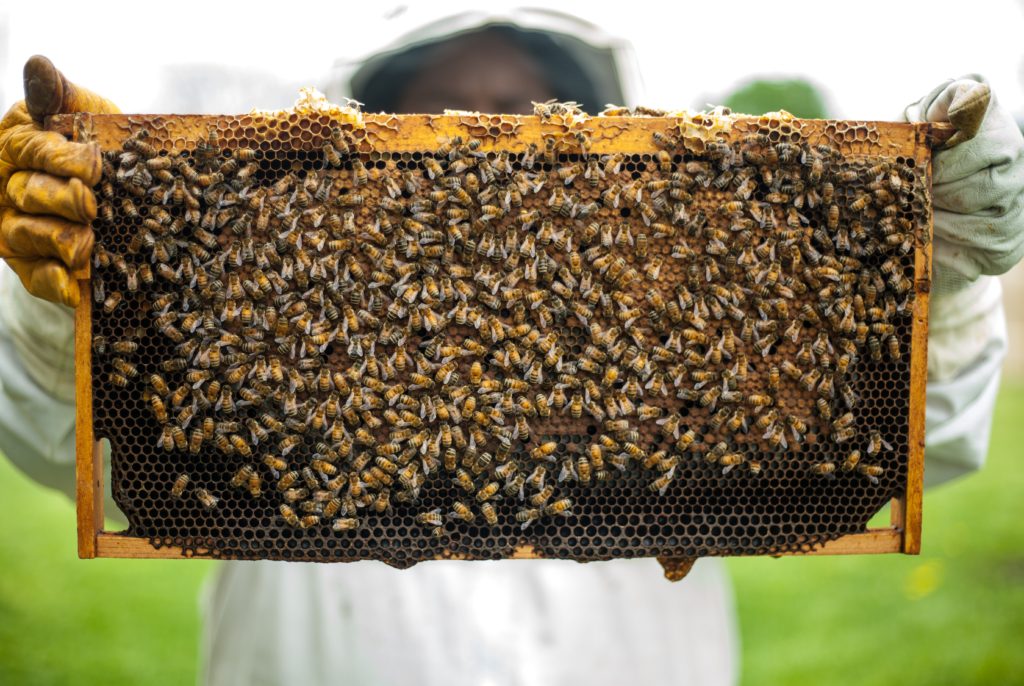Beekeeping

Beekeeping, also known as apiculture, is the practice of maintaining colonies of honeybees for the purpose of harvesting honey, beeswax, and other bee-related products. It is a fascinating and rewarding hobby for many reasons:
1. Connection with Nature: Beekeeping allows you to connect with the natural world. You’ll learn about the complex and highly organized social structure of honeybee colonies and gain a deeper understanding of how bees contribute to pollination and the environment.
2. Honey Production: One of the primary rewards of beekeeping is the production of honey. Honey is not only delicious but also has numerous health benefits. Homemade honey often has unique flavors based on the local flora, making it a sought-after product.
3. Beeswax and Propolis: Beekeepers can also harvest beeswax, which can be used for various purposes such as making candles, cosmetics, and even furniture polish. Propolis, a substance bees use to seal their hives, has medicinal properties and is used in various health products.
4. Pollination: Bees are essential for pollinating many plants, including fruits and vegetables. By keeping bees, you contribute to the pollination of your garden or nearby farms, promoting better crop yields.
5. Educational Value: Beekeeping is a continuous learning experience. You’ll gain knowledge about bee behavior, biology, and their interactions with the environment. It’s an opportunity for lifelong learning and personal growth.
6. Stress Reduction: Many beekeepers find the act of tending to their bees to be relaxing and meditative. Working with bees can be a therapeutic and stress-reducing activity.
7. Sustainable and Eco-Friendly: Beekeeping is a sustainable hobby that supports the health of bee populations. With the decline in global bee populations due to various factors, such as habitat loss and pesticide use, beekeepers play a crucial role in bee conservation.
Getting Started
1. Education: Before you begin beekeeping, it’s essential to educate yourself. Read books, take classes, or join local beekeeping associations to learn about bee biology, hive management, and safety protocols.
2. Equipment: You’ll need the necessary beekeeping equipment, including a beehive, frames, a smoker, a bee suit, gloves, and various tools for hive inspection and maintenance.
3. Choose a Suitable Location: Select a suitable location for your beehive. Ensure it has adequate sunlight, protection from strong winds, and is away from areas with heavy foot traffic.
4. Acquire Bees: There are different ways to obtain bees, such as buying a package of bees with a queen or capturing a swarm. Work with experienced beekeepers to learn the best method for your situation.
5. Hive Management: Regularly inspect your hive for signs of disease, pests, and to ensure the colony is healthy. You’ll also need to provide supplemental food, especially during the winter months.
6. Harvesting: Once your colony is established and thriving, you can begin harvesting honey and other products according to best practices.
7. Safety: Always prioritize safety when working with bees. Wear protective gear, move calmly and deliberately, and be aware of potential allergic reactions to bee stings.
Remember that beekeeping can be challenging, and it’s crucial to be patient and attentive to your bees’ needs. With dedication and the right knowledge, beekeeping can be a fulfilling and environmentally friendly hobby.


